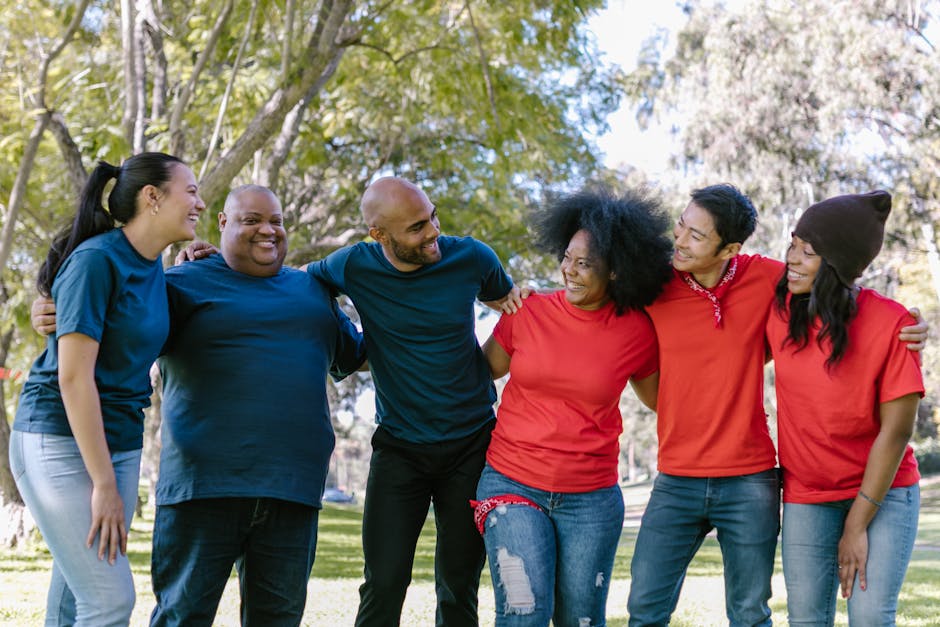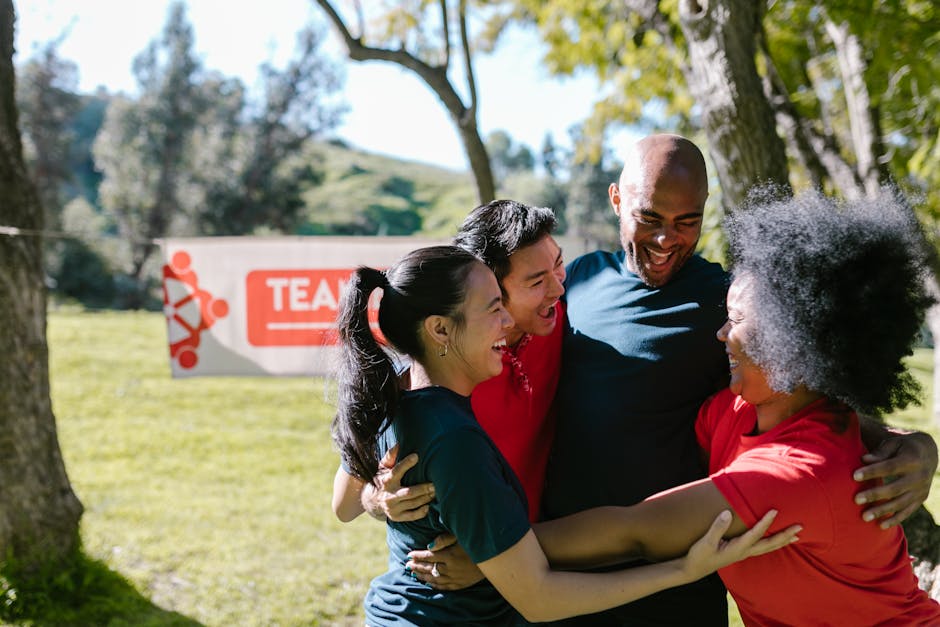Tips for Hosting Community Events
Organizing a successful community event requires careful planning, attention to detail, and a deep understanding of your audience’s needs and interests. Whether you are hosting a small neighborhood gathering, a charity fundraiser, or a large-scale festival, there are key strategies and tips that can help you create a memorable and engaging experience for all participants. In this comprehensive guide, we will explore the best practices for hosting community events, drawing from real-life examples, expert insights, and valuable resources to ensure your event is a resounding success.
1. Define Your Goals and Objectives

Before diving into the logistics of planning your community event, it is essential to clearly define your goals and objectives. What do you hope to achieve with this event? Are you looking to raise awareness for a cause, foster community engagement, or simply provide a fun and entertaining experience for attendees? By establishing clear goals from the outset, you can tailor your event planning process to align with these objectives and ensure that every aspect of the event contributes to its overall success.
For example, if your goal is to raise funds for a local charity, you will need to focus on marketing and promotion strategies that highlight the charitable aspect of the event and encourage attendees to donate. On the other hand, if your goal is to celebrate cultural diversity within your community, you may want to incorporate performances, workshops, and activities that showcase different traditions and practices.
By defining your goals and objectives early on, you can create a cohesive event that resonates with your target audience and delivers the intended impact.
2. Know Your Audience

Understanding your audience is key to hosting a successful community event. Take the time to research the demographics, interests, and preferences of the people you are targeting, and tailor your event to meet their needs. Are you catering to families with young children, young professionals, or senior citizens? What types of activities, entertainment, and amenities are likely to appeal to your target audience? By gaining insights into the demographics and psychographics of your attendees, you can create a more personalized and engaging event experience.
For example, if you are hosting a family-friendly event, you may want to include children’s activities, kid-friendly food options, and a designated play area. On the other hand, if your event is targeting young professionals, you may want to focus on networking opportunities, industry-specific workshops, and entertainment that appeals to a more mature audience.
By knowing your audience and tailoring your event to their preferences, you can increase attendance, enhance participant satisfaction, and ultimately achieve your event goals.
3. Choose the Right Venue

The venue you select for your community event can have a significant impact on its success. Consider factors such as location, size, amenities, accessibility, and ambiance when choosing a venue that suits your event’s theme and objectives. Whether you opt for an outdoor park, a community center, a school gymnasium, or a local restaurant, ensure that the venue can accommodate the needs of your event and provide a comfortable and inviting space for attendees.
When selecting a venue, consider the logistics of setting up and managing the event, including parking, restroom facilities, seating arrangements, and equipment requirements. If your event involves performances or presentations, ensure that the venue has the necessary audiovisual equipment and technical support to facilitate a seamless experience for both organizers and attendees.
Additionally, be mindful of any permit requirements, noise restrictions, and zoning regulations that may apply to your chosen venue, and obtain the necessary approvals well in advance to avoid any last-minute complications.
4. Create a Comprehensive Event Plan

Effective event planning is essential for the success of any community event. Develop a detailed event plan that outlines key tasks, deadlines, responsibilities, and resources required to execute the event smoothly. Consider creating a timeline that breaks down the planning process into manageable stages, from initial concept development to post-event evaluation.
Include checkpoints and milestones in your event plan to track progress and ensure that all aspects of the event are being addressed in a timely manner. Assign roles and responsibilities to team members or volunteers, and establish clear communication channels to facilitate coordination and information sharing throughout the planning process.
When creating your event plan, pay attention to critical elements such as budgeting, marketing and promotion, vendor management, logistics, and risk management. By addressing these key areas in your event plan, you can minimize potential challenges, maximize efficiency, and ensure that your event runs smoothly from start to finish.
5. Engage with the Community
Community engagement is a vital aspect of hosting successful community events. Build relationships with local businesses, organizations, and community leaders to garner support, collaboration, and sponsorship for your event. Engage with residents, volunteers, and attendees through social media, community forums, and outreach activities to generate buzz, gather feedback, and encourage participation.
Involve the community in the planning and execution of the event by soliciting input, ideas, and contributions from local stakeholders. Consider hosting community meetings, focus groups, or workshops to gather insights and feedback on event programming, logistics, and promotion strategies. By involving the community in the planning process, you can create a sense of ownership and investment in the event, leading to increased attendance and participation.
Furthermore, consider incorporating elements of community engagement into the event itself, such as interactive activities, volunteer opportunities, and networking sessions that encourage attendees to connect with one another and with local resources. By fostering a sense of community spirit and collaboration, you can create a more inclusive and impactful event experience that resonates with attendees long after the event has ended.
6. Evaluate and Reflect
After hosting a community event, take the time to evaluate its success and reflect on lessons learned. Gather feedback from attendees, volunteers, and stakeholders through surveys, focus groups, and post-event debriefings to assess the strengths and areas for improvement of the event. Analyze key performance indicators such as attendance numbers, participant satisfaction ratings, revenue generated, and social media engagement to measure the impact and effectiveness of your event.
Reflect on the event planning process, identify challenges and successes, and document key takeaways that can inform future events. Consider what worked well and what could be improved in terms of logistics, programming, marketing, and community engagement, and use this feedback to refine your event planning strategies for future initiatives.
By evaluating and reflecting on your community event, you can continuously improve your event planning skills, enhance the attendee experience, and achieve greater success in hosting future events that resonate with your target audience and achieve your overarching goals.
Conclusion
To wrap things up, hosting community events requires careful planning, strategic decision-making, and a deep understanding of your audience and objectives. By defining clear goals, knowing your audience, choosing the right venue, creating a comprehensive event plan, engaging with the community, and evaluating and reflecting on your event, you can host successful and impactful community events that bring people together, foster connections, and create lasting memories.
Remember, community events are more than just gatherings; they are opportunities to celebrate diversity, promote social cohesion, and make a positive impact on the lives of individuals and communities. By following these tips and best practices, you can elevate your event planning skills and create meaningful experiences that resonate with attendees and leave a lasting legacy in your community.




